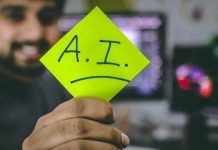South Korea has introduced its first full framework for regulating the use of personal data in artificial intelligence development.
According to PPC, the Personal Information Protection Commission (PIPC) unveiled draft guidelines in August 2025 designed to clarify legal uncertainties while strengthening privacy safeguards in the age of generative AI.
The move comes as governments worldwide look to balance rapid AI innovation against growing concerns about personal data protection. South Korea’s new framework tackles the issue head-on by setting out how AI developers can lawfully process publicly available data for model training.
The commission has anchored its guidelines on the concept of legitimate interests, requiring businesses to prove three conditions: that their data use has a legitimate purpose, that it is necessary, and that an appropriate balance of interests exists between data subjects and data processors. Developers must also clearly specify their intended model purpose, with safeguards preventing irrelevant data collection. For example, medical diagnostic AI systems should not use income or property information.
Alongside these principles, the framework introduces technical protections including dataset verification, de-identification processes, secure storage, and filtering functions. The commission has also addressed “machine unlearning” methods, enabling removal of specific data points from AI training models when required.
Administrative measures form another cornerstone of the framework. AI firms are instructed to build privacy policies incorporating new standards, conduct Privacy Impact Assessments, and set up AI Privacy Red Teams to monitor risks. However, the commission has stressed a degree of flexibility, noting that businesses should adopt measures suitable for their technology’s maturity and intended functions.
The guidelines emphasise the protection of data subject rights, including the ability to request deletion or suspension of data used in AI training. Transparency requirements will compel firms to disclose data collection practices in their policies.
The framework was shaped through extensive consultation. The Public-Private Policy Advisory Council for AI Privacy brought together 30 experts from academia, industry, and civil society. Professor Byoung Pil Kim of KAIST, who chaired a subcommittee on data processing criteria, said, “it is part of our endeavors to meet halfway between protecting personal data and encouraging AI-driven innovation. This will be a great guidance material for the development and usage of trustworthy AI.”
LG AI Research head and advisory co-chairperson Kyunghoon Bae added, “the guideline provides a lawful basis to safely process personal data from publicly available data to mitigate legal uncertainties in developing AI technologies.”
The commission has also sought to align its approach with international standards, reflecting regulatory moves in the US and EU. Chairperson Haksoo Ko highlighted the regulatory gap being addressed, stating, “Clarification is not sufficient enough as to how to ensure legality and safety in using publicly available data for AI model training, even though AI technology is advancing at an exponential rate.”
The guidelines are effective immediately, with the PIPC planning regular updates to reflect evolving technology. Implementation will be supported by schemes such as the Prior Adequacy Review Scheme, a Regulatory Sandbox, and a Personal Information Safety Zone. These initiatives aim to help firms adapt while collecting best practices for future revisions.
Technical provisions in the framework span the AI development lifecycle, covering preprocessing, training, fine-tuning, filtering, and system-level safeguards. Emerging AI applications such as retrieval-augmented generation and AI agents with access to external databases are also covered, requiring additional safeguards against privacy risks.
The PIPC has already carried out preliminary inspections of AI services, issuing recommendations on transparency and data protection practices. These guidelines, the commission says, will provide a compliance roadmap for businesses operating in an environment where AI continues to advance at speed.
Keep up with all the latest RegTech news here
Copyright © 2025 RegTech Analyst
Copyright © 2018 RegTech Analyst






